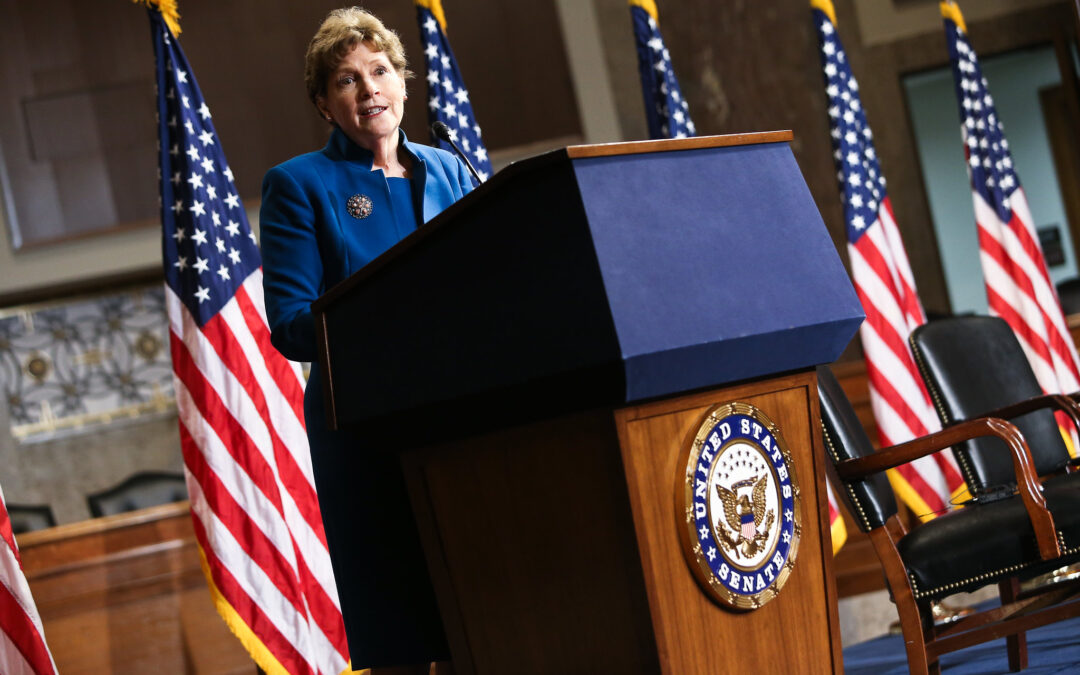A bipartisan group of US senators has accused Poland’s government of “democratic backsliding” and “undermining media freedoms”. Such actions could damage Polish-American trade, business and defence relations, they warn.
The statement was issued by Jeanne Shaheen, chair of the Senate Foreign Relations Subcommittee on Europe and Regional Security Cooperation, together with Senate Foreign Relations Committee Ranking Member Jim Risch, Senate Majority Whip Dick Durbin, and Senators Chris Murphy, Chris Coons, and Ben Cardin.
It comes in response to a move by Poland’s ruling national-conservative Law and Justice (PiS) party to prevent media outlets from being owned by entities from outside the European Economic Area (EEA).
The measure is seen to be aimed in particular at the country’s biggest private broadcaster, TVN, which is owned by American media conglomerate Discovery, Inc. and is disliked by PiS for its often critical coverage of the government.
“The Polish government’s continued democratic backsliding, most recently through efforts designed to undermine independent media and one of the largest US investments in the country, is deeply concerning,” write the senators.
“This legislation, coupled with Poland’s refusal to renew the license for the firm TVN, continues a troubling trajectory for Poland’s democracy…and would further undermine media freedoms for which Poles have long fought,” they add.
“These and other steps, which Poland — a NATO ally and close friend and partner of the United States — has recently taken, do not reflect the shared values that underpin our bilateral relationship…[and] could have negative implications for defense, business and trade relations,” concludes the statement.
A number of commentators, politicians and officials – including from within the ruling camp – have warned that the legislation, if passed in its current form, could damage ties with the US, one of Poland’s most important allies.
“Such a law means war with the USA,” said Juliusz Braun, a member of the National Media Council, a state body, last month.
“We have clear statements from the Washington administration that [the law in its current form] will freeze our economic relations…[and] I think the negative impact would be even wider,” warned Jarosław Gowin, deputy prime minister and leader of one of PiS’s junior coalition partners.
"You see what's happening in everything from Belarus to Poland to Hungary and the rise of totalitarian regimes in the world and this president embraces all the thugs in the world," said @JoeBiden at his town hall event last night pic.twitter.com/Ix8R8bhQNc
— Notes from Poland 🇵🇱 (@notesfrompoland) October 16, 2020
Gowin has held talks with Biden administration officials over the issue. His party, Agreement (Porozumienie), has proposed that the legislation should allow media ownership by entities from not only the EEA, but also the OSCE, an international organisation that include the US.
The European Commission has also expressed concern over the proposed legislation, as has the acting US ambassador to Poland, Bix Aliu. His predecessor, Georgette Mosbacher, intervened a number of times to defend TVN from attacks by PiS politicians and state-run media.
Last week, a group of hundreds of Polish journalists and editors signed an open letter defending TVN and criticising the government’s actions.
“Neutering TVN and subordinating it to the state is to be one of the final stages of taking control of one of the last institutions that holds the country’s authorities accountable and defends such democratic values as transparency, tolerance, and equality before the law,” they wrote.
Since PiS came to power, Poland has fallen every single year in the annual World Press Freedom Index compiled by Reporters Without Borders. From its highest ever position of 18th in 2015, when PiS took office, it reached its lowest ever position of 64th this year.
Under PiS, public media have been used to promote the ruling party and attack its opponents, hundreds of local media outlets have been purchased by a state-owned oil giant with government support, and private media outlets and journalists have been targeted with dozens of lawsuits by state entities.
Meanwhile, Poland has also declined in various international rankings of democracy, freedom and rule of law, including those compiled by Freedom House, Varieties of Democracy, the Heritage Foundation and the Cato Institute.
Main image credit: Paul Morigi/Brookings Institute (under CC BY-NC-ND 2.0)

Daniel Tilles is editor-in-chief of Notes from Poland. He has written on Polish affairs for a wide range of publications, including Foreign Policy, POLITICO Europe, EUobserver and Dziennik Gazeta Prawna.




















